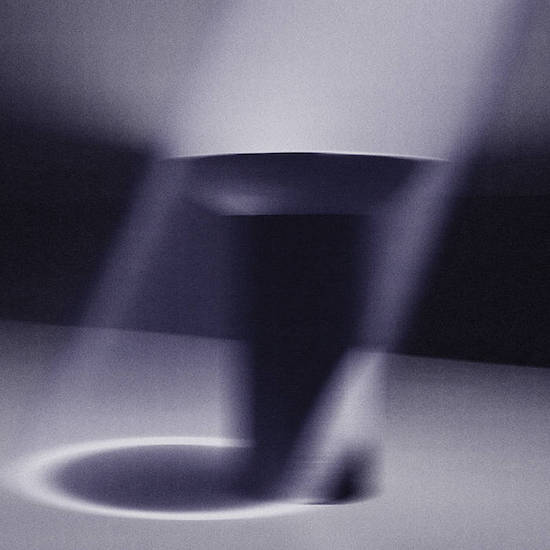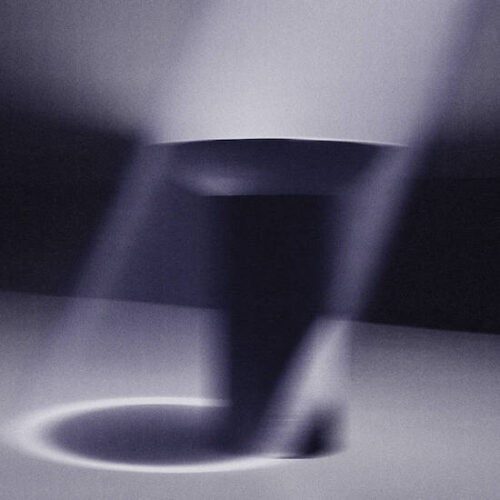If Embryo EP (2022) was a full-frontal assault of footwork-ed techno mutations that harkened back to Underground Resistance’s hi-tech jazz, the new mini album by Indiana-born luminary Jlin comes from an ostensibly different background. It’s aligned with modern composition, post-Reich minimalism and club music, yet doesn’t really belong anywhere.
Perspective is presented as an electronic reimagining of her compositions created with the Grammy Award-winning Third Percussion Orchestra, which in 2023 duly won her a nomination for the Pulitzer Prize in Music. Supported by DJ Rashad and William Basinski alike, it’s thrilling to see her music thrive both in elite concert halls and damp basements. The footwork avantgardist is one of the rare artists today who’s managed to be simultaneously hailed by niche music outlets and pretentious music heads as well as the mainstream.
Perspective is a kind of ‘reverse project’. It’s usually the orchestra which adapts original material by a certain artist, accommodating the transition from ‘street producer’ to ‘revered artist’. Think of Jeff Mills’ collab with Montpellier Philharmonic Orchestra or Actress’ work with London Contemporary Orchestra. Jlin’s mini album is even more particular as it builds on the repertoire of a percussion ensemble translated in a DAW context. Its focus isn’t on intricate glissandi and powerful brass sections. It’s all about percussion timbre, texture, metre, groove, fluctuating tempi and ‘rhythmelodies’.
Like an inner artistic dialogue, the discourses Perspective opens are associated with live versus studio-produced music, modern composition and DAW production, analogue vis-a-vis digital timbres etc. In 1939 John Cage famously proclaimed that “percussion music is revolution”, nailing the impending trajectories in the development of experimental and electronic music. I hear a direct connection between what Steve Reich was trying to achieve around 1970, and what Jlin is making 50-odd years later, particularly in the closer ‘Duality’ which seems to be partly inspired by the second half of Reich’s ‘Drumming’.
The darbuka-infused ‘Dissonance’ is a prime example of her musical lucidity. Her (poly)rhythmic programming is jaw-dropping, with continuously changing time signatures and timbres that have a very human, organic, almost tangible character, as if there were real hands, and not just mouse clicks behind them. On ‘Derivative’, we hear screechy synths and low slung frequencies which add to its alienating vibe. The listening experience is quite different from the more acoustically idiosyncratic palette of the original recording, with pans, pots, Thai gongs and other unconventional percussion.
It’s also fascinating going back and forth between the ensemble and electronic version of ‘Paradigm’, focusing on how ‘the same’ composition presented through a different framework acts differently on your synapses. Both are marked by a psychedelic, gamelan-like atmosphere. But while the former evokes Jon Hassell’s Fourth World tradition, the latter is closer to her label mate Speaker Music’s new album Techxodus. There’s a futuristic bent to both artists’ music. Speaker Music mainly bets on untethered free jazz patterning and a technological Afrofuturistic framework, while as a composer Jlin is more preoccupied with groove theory.
Footworks remains the axis around which Jlin’s productions revolve, though her music transcends contemporary club trends, flirting with modern composition and theatre music. It’s music which adheres to Kodwo Eshun’s ideas that rhythm acts to transform perceptual bodies. When in contact with disruptive rhythms, the body is affected and transformed. And as Dhanveer Singh Brar discussed in his analysis of Chicago’s Footwork scene Teklife, Ghettoville, Eski, footwork doesn’t operate on a logic of individual virtuosity at the level of either producer or dancer. It’s constituted by “an ongoing ensemble of sonic, gestural, social, racial, economic, and geographic relations,” a statement that echoes the process of creation behind Perspective.



